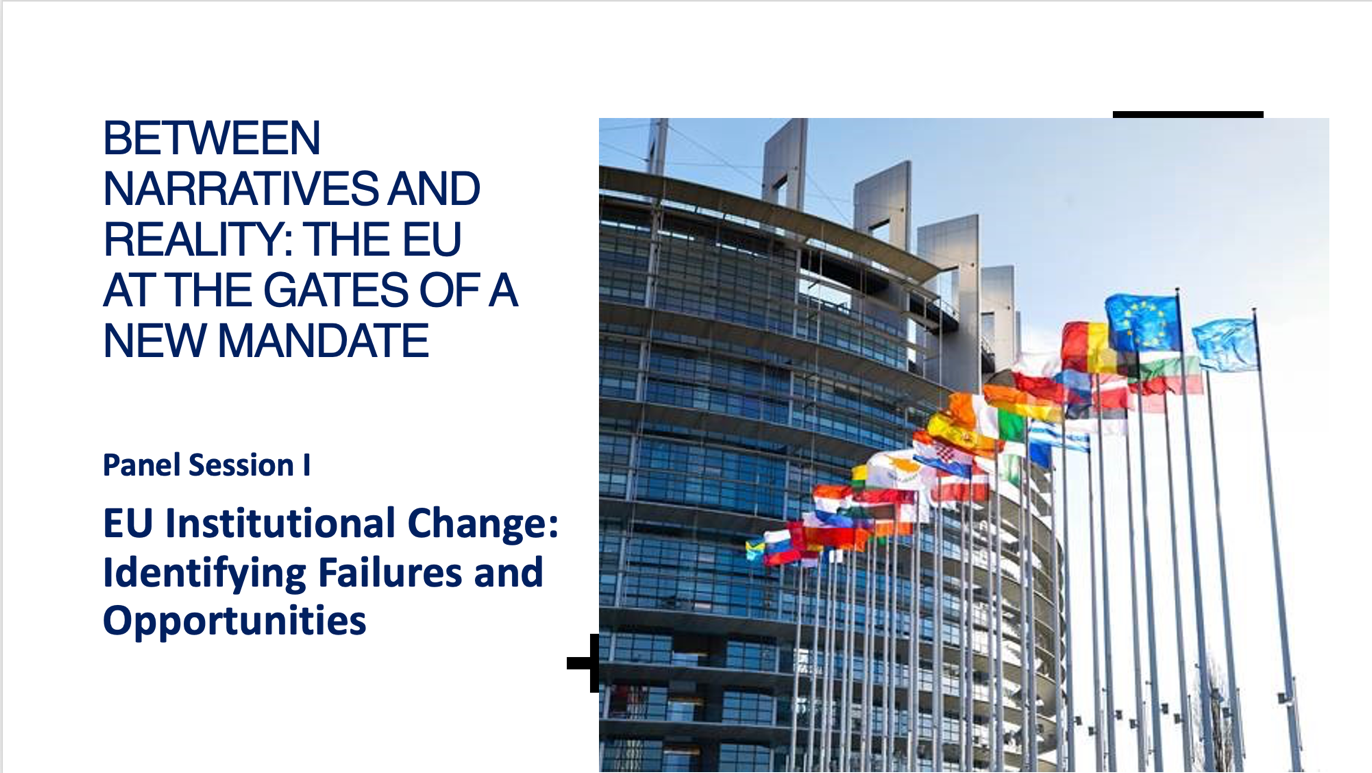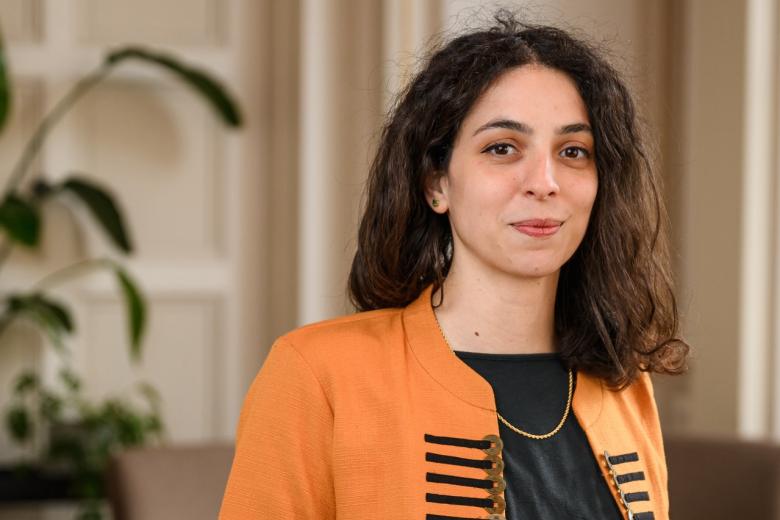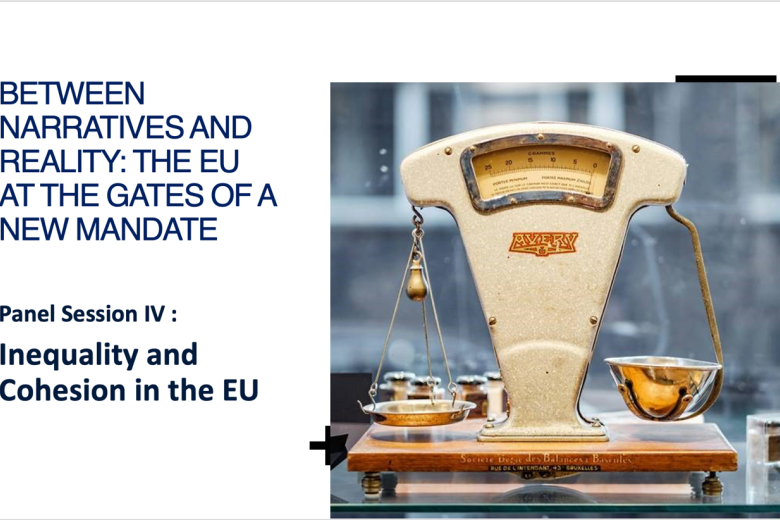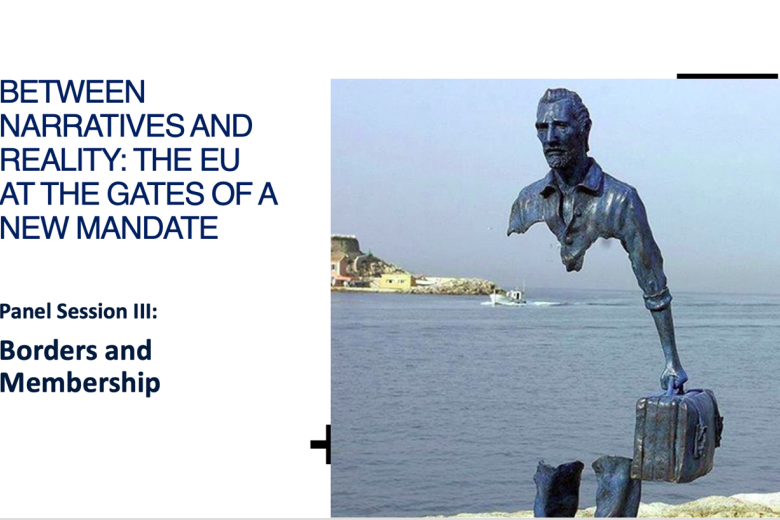Reflection on Panel 1: Institutional Change
This blog post is part of a series reflecting on the panel discussions held during the conference "Between narratives and reality: The EU at the gates of a new mandate", which took place at the Faculty of Law of Maastricht University on June 20 and 21, 2024. This panel focused on Institutional Change.

Chair: Thu Nguyen
Speakers: Fernanda Nicola, Alexander Schuster, and Jock Gardiner
Throughout their history, EU institutions have evolved to match the developments of the Union and its increased competences. The narrative of institutional reform is a powerful one and hinges on the necessity to enable the institutions to act. The functioning of EU institutions had been questioned in the Conference on the Future of Europe and amidst the deepening of rule of law crisis, but it did not gain the expected traction. Then, in the context of enlargement, the question suddenly came back to the fore: proposals for institutional reform are centrepiece in the discussions and – for many – an urgent need before the EU can enlarge at all. The matter lost momentum again ahead of the European election when it was far from being in the spotlight of the debate.
Amidst this fluctuating attention, institutional and constitutional change can happen through different mechanisms. First, they can take place through formal Treaty reform: a difficult process, for which, as Thu Nguyen has reminded us in her opening remarks, there is currently little appetite. Change however, can also occur via less evident mechanisms, with EU institutional practice, or thanks to actors other than the institutions, or via the discourses – and narratives – that drive institutional action. The panel has explored the potential future geometries of EU institutional change, and their impact on individuals and on the constitutional framework.
Fernanda Nicola’s presentation aimed at contextualising the process that led to the overturning, in 2023, of the Law and Justice party in Poland. The presentation first illustrated the various phases of EU institutional action to deal with the rule of law crisis (soft law, judicial intervention, and budget conditionality) analysing the discrepancy between their ambitions and their (in)effectiveness, legitimacy, and impact on the ground. Nicola put forward a law and political economy analysis of the national and local actors involved in the fight against the rule of law backsliding (judges, civil society organisation and gender equality advocates at a national level). Those local actors mobilized legal and political resources through multiple strategies encompassing not only litigation to protect rights and interests beyond judicial independence. Nicola concluded her law and political economy analysis reflecting on the need to account for the impact of EU action on those actors and their pivotal role in protecting core Union values that are often concealed under the focus on an abstract understanding of the rule of law.
After Nicola’s presentation, Alex Schuster illustrated how “securitization”, a framework of analysis imported from international relations studies, can shed new light on the question of competence creep – ie the extension of Union powers beyond its explicitly conferred competences – by linking it to its political and constitutional drivers. Securitization is a process through which institutional actors with authority on a certain policy issue frame the latter as a matter of security, thus prioritizing it on the agenda and expanding what is perceived as a crisis. That framing entails a call for action and the adoption of extraordinary measures in that policy area, with the aim of doing “whatever it takes” to tackle the threat. As a consequence of the new measures, formally the scope of EU action expands beyond the conferred powers. And yet, by analysing the process across two domains (Economic Security and Military Security) Schuster showed that in practice, the EU is not always the one that acquires more powers, when Member States, by seemingly allowing the Union to act in previously unthinkable policy areas, actually take their powers back acting collectively through EU institutions.
Finally, Jock Gardiner’s presentation dealt with whether and how the Rules of Procedure of the European Parliament can modify the constitutional order of the EU without engaging any formal process of constitutional development. The presentation, using examples from Parliamentary practice, such as the hearing of Commissioner-designates, analysed how with informal changes of internal rules the Parliament can actually shape constitutional change with limited oversight of other institutions and in particular of the Court of Justice. Gardiner underlined the need for constitutional scholars to look at institutional practice and its effects, often underestimated, in filling constitutional gaps or changing the constitutional culture. Against this background, one should question whether, instead of leaving unaddressed the discrepancy between the role that the Treaty assign to the Parliament and its impact through the practice and application of the Rules of Procedure, the Court of Justice should assess the allowed scope for covert constitutional change.
A lively debate with the audience followed the panellists’ presentations, engaging their interdisciplinary aspects and the novel perspectives they offered. The Chair of the panel, Thu Nguyen, then concluded reflecting on the scope and the support for future institutional and constitutional change.
Also read
Introduction - Between narratives and reality: The EU at the gates of a new mandate
Panel 2: Environmental Protection
Panel 3: Migration and Membership
Panel 4: Inequality and Cohesion
L. Díez Sánchez
I am Assistant Professor in EU Law. Before that, I was Inquiries Officer at the strategic team of the European Ombudsman, Teaching Fellow in Law at Sciences Po Paris, and Emile Noël Fellow at New York University (Fulbright-Schuman Scholar).

F. Ristuccia
Fulvia Ristuccia holds a Master’s degree in Law from Roma Tre University (2014), an LLM in European Law from the College of Europe in Bruges (2017), where she was also Academic Assistant in a.y. 2017-2018, and a PhD (cum laude, 2022) from Bocconi University.

-
The Proposal to Reform Comitology is Dead. Long Live Comitology!
This blog was originally published on the European Law Blog on 13 March 2025.
On 11 February 2025, the Commission announced the withdrawal of the 2017 Proposal to reform the Comitology Regulation. The reasons for the withdrawal are rather succinct: ‘[n]o foreseeable agreement – the Proposal is...

-
Reflection on Panel 4: Inequality and Cohesion
This blog post is part of a series reflecting on the panel discussions held during the conference "Between narratives and reality: The EU at the gates of a new mandate", which took place at the Faculty of Law of Maastricht University on June 20 and 21, 2024. This panel addressed inequality and...

-
Reflection on Panel 3: Migration and Membership
This blog post is part of a series reflecting on the panel discussions held during the conference "Between narratives and reality: The EU at the gates of a new mandate", which took place at the Faculty of Law of Maastricht University on June 20 and 21, 2024. This panel covered issues related to...
